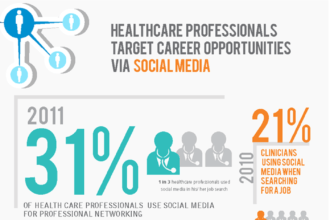1. Reputation The products made by the pharmaceutical industry have saved millions and millions of lives and transformed length and quality of life all over the world. But health is a very emotive subject and any little misdemeanour, like inappropriate marketing, lack of transparency or excessive pricing causes a lot of negativity. It’s also an industry that is misunderstood, with complex science, product development and go-to-market processes. Doing the right things is therefore not enough to repair reputation – the industry must connect directly with patients to humanise itself and help people understand the reality of how it works. In doing so, least some of the conspiracy theories might disappear, helping to improve reputation. 2. Patient influence is increasing In the digital and social media age, the healthcare conversation has been democratised and the relationship between healthcare providers and patients has shifted. Patients are no longer the passive recipients of information and advice on how to manage their condition – they are going into armed with information from Dr Google and ready to challenge the medical experts. For an industry that has always dealt with complex customer networks of direct prescribers and influencers, Patient Opinion Leaders have become as important as medical Key Opinion Leaders and they are found everywhere. So even in the majority of markets where direct-to-consumer prescription drug advertising is banned, engaging with patients on disease level issues leads to a more informed point of prescription conversations, with a direct benefit for pharma. 3. The rise of digital health Whether it’s in the context of communication, tracking data or therapeutic intervention, digital now permeates the entire health ecosystem. In response, pharmaceutical companies are investing heavily in technology, seeking to enhance the potential for their medicines through beyond-the-pill initiatives. Take a look at the best technology companies and you quickly realise how close to the consumer they are – good user experience and user-led design are critical components of some of the most successful companies, like Apple and Uber. Conversely, many digital pharma initiatives fail because they are developed in isolation. Good beyond-the-pill digital interventions can only be realised through co-creation with the patient, which requires constant engagement. 4. Value replaces efficacy New medicines are no longer judged on the basis of efficacy, safety and quality. Outcomes are the buzzword in health systems today – the ability for medicines to deliver a positive outcome for a patient at the right price to justify it. The problem for pharma with outcomes is that they are dependent on many more factors than the clinical profile of the drug itself, such as whether patients actually take medicines as instructed, how they interact with other medicines where patients have multiple disorders and broader lifestyle factors that influence their disease. Despite the plethora of big data now available, sometimes the only way to really understand these game-changing factors is by speaking to real patients, on a regular basis. 5. Clinical trials need to reflect the real world Building on the above point, the drug development process in the pharmaceutical industry has not changed significantly in decades. Phase I, II and III human trials are carried out under very controlled circumstances with highly targeted groups of test subjects, neither of which is necessarily representative of patients in the real world (hence the term ‘clinical’). R&D still remains the most expensive and risky area for pharma, with the average drug now costing billions of dollars to get to market. Within an environment where the update of medicines is determined by the results they deliver in the real world and not the clinic, patient input into clinical trial design is critical and engaging with patients early could save significant time and money. So there you have it – 5 very simple reasons why patient engagement is not just about PR but is now fundamental to the commercial success of pharma companies. Let me know if you think there are other reasons I missed!






